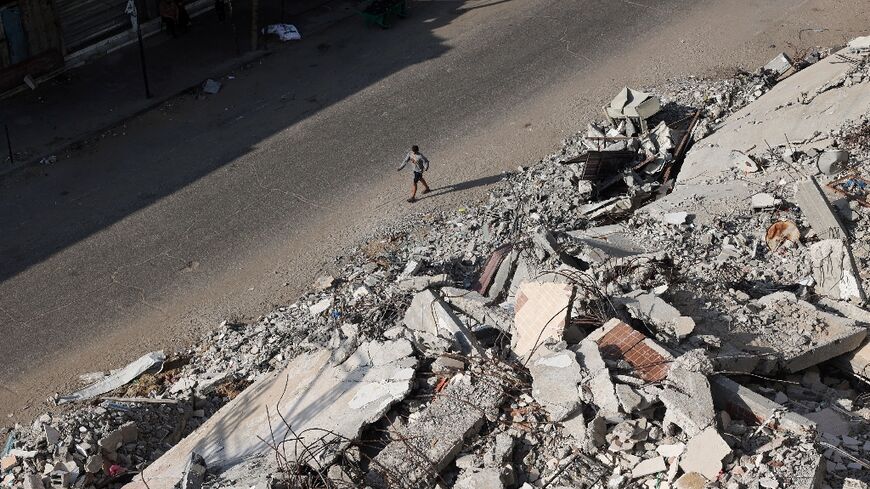Top US diplomat Antony Blinken on Tuesday urged Hamas to accept a truce in Gaza, as Israeli Prime Minister Benjamin Netanyahu vowed to launch a military offensive on Rafah "with or without" a deal.
The hawkish premier issued the warning despite strong concerns raised by top ally Washington and hours before Secretary of State Blinken arrived in Israel on his latest Middle East crisis tour.
Netanyahu, who has vowed to destroy Hamas over its October 7 attack, said stopping the war "before achieving all of its goals is out of the question".
"We will enter Rafah and we will eliminate the Hamas battalions there with or without a deal," he told families of some of the hostages still being held in Gaza, his office said.
Netanyahu's comments came as Hamas was weighing the latest plan for a truce proposed in Cairo talks with US, Egyptian and Qatari mediators.
The Palestinian militant group said it was considering a plan for a 40-day ceasefire and the exchange of scores of hostages for larger numbers of Palestinian prisoners.
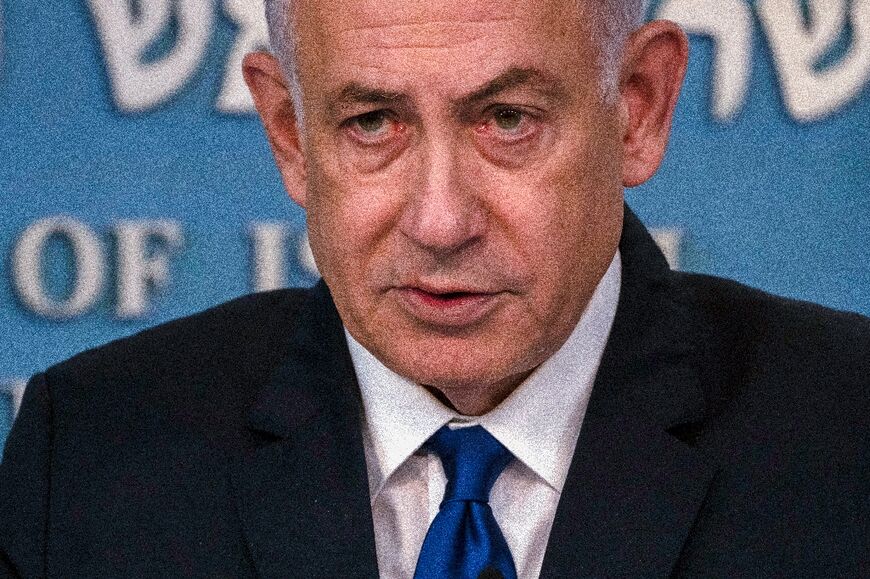
Hamas, whose envoys returned from Cairo talks to their base in Qatar, would "discuss the ideas and the proposal", said a Hamas source, adding that "we are keen to respond as quickly as possible".
Al-Qahera News, a site linked to Egyptian intelligence services, earlier reported that Hamas negotiators were due to "return with a written response".
An Israeli official told AFP the government "will wait for answers until Wednesday night", and then "make a decision" whether to send envoys to Cairo.
Washington has heightened pressure on all sides to reach a ceasefire -- a message pushed by Blinken, who was on his seventh regional tour since the war broke out.
"Now it's on Hamas," Blinken told reporters in Jordan. "No more delays, no more excuses... We want to see in the coming days this agreement coming together."
- New aid route -
Blinken, who arrived in Israel ahead of talks with Netanyahu and other officials on Wednesday following visits to Jordan and Saudi Arabia, also called for the redoubling of aid efforts.
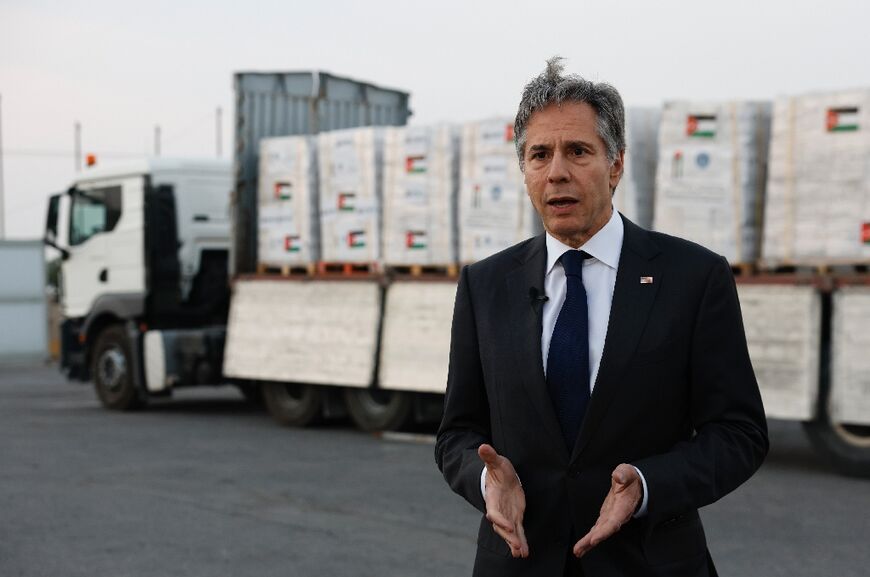
A truce is "the most effective way to relieve the suffering" of civilians in the besieged Gaza Strip, he told reporters near Amman.
Blinken saw off a first Jordanian truck convoy of aid heading to Gaza through the Erez crossing reopened by Israel.
"It is real and important progress, but more still needs to be done," he said.
A US-built floating pier on Gaza's coast is expected to be completed later this week, said Cyprus, the departure point for the planned "maritime corridor".
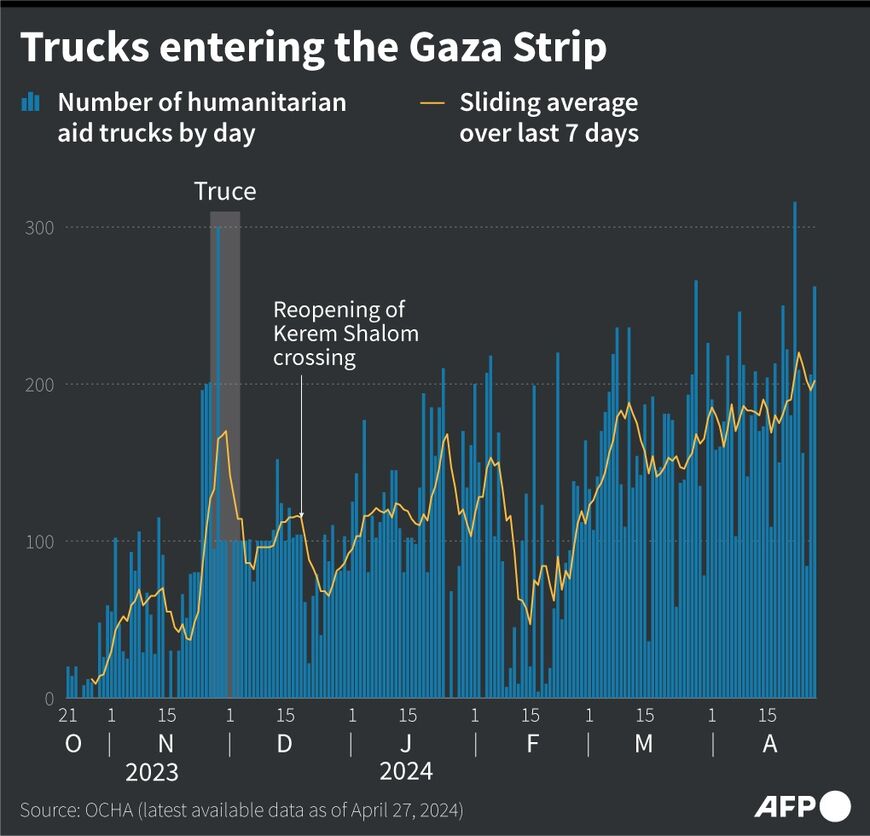
Blinken said the pier would "significantly increase the assistance" but was not "a substitute" for greater overland access.
In northern Gaza's Beit Lahia, across from Erez crossing, 24-year-old farmer Yussef Abu Rabih was replanting plots he said had been "completely destroyed" by the fighting.
"We decided to return to farming despite difficult conditions and scarce resources" after suffering "severe hunger", he told AFP.
At the height of the crisis, Abu Rabih said he saw many Gazans "scouring the roads, streets and fields for any sort of grass they could find to eat".
- 'Unbearable escalation' -
The war started after Hamas's October 7 attack on southern Israel resulted in the deaths of 1,170 people, mostly civilians, according to an AFP tally of Israeli official figures.
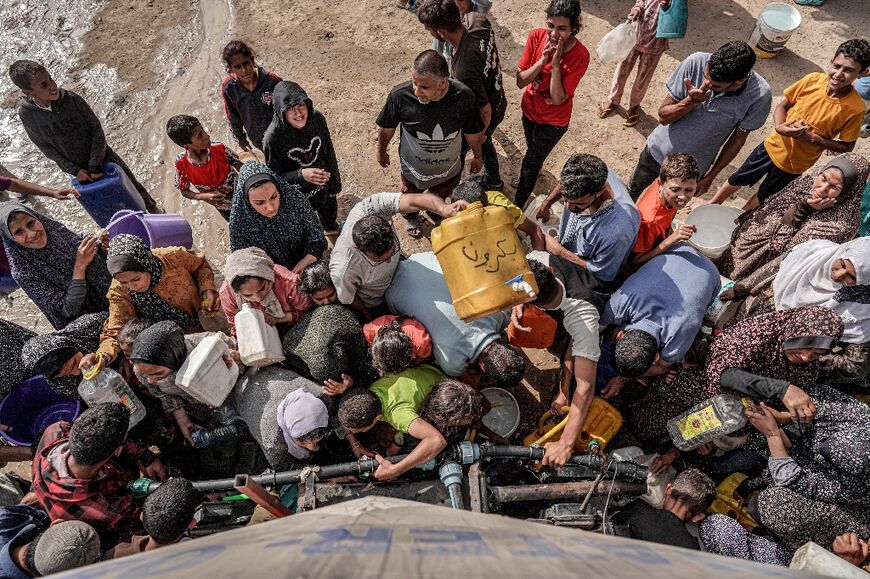
Israel's retaliatory offensive has killed at least 34,535 people in Gaza, mostly women and children, according to the health ministry in the Hamas-run territory.
Palestinian militants also took some 250 hostages on October 7. Israel estimates 129 remain in Gaza, including 34 believed to be dead.
As diplomacy continued, Israel kept up its bombardment that has flattened swathes of Gaza.
An AFP correspondent reported air strikes on Gaza City, Khan Yunis and Rafah, while Israel said "fighter jets struck a number of terror targets in central Gaza".
Washington has strongly backed its ally Israel but also pressured it to refrain from a ground invasion of the far-southern city of Rafah, which is packed with displaced civilians.
Calev Ben-Dor, a former analyst for the Israeli foreign ministry and now deputy editor for specialised review Fathom, told AFP that Netanyahu's "Rafah comments likely have more to do with trying to keep his coalition intact, rather than operational plans in the near term".
The prime minister "is feeling the squeeze between the Biden administration" and far-right members of his government who have vehemently opposed the proposed truce, Ben-Dor said.
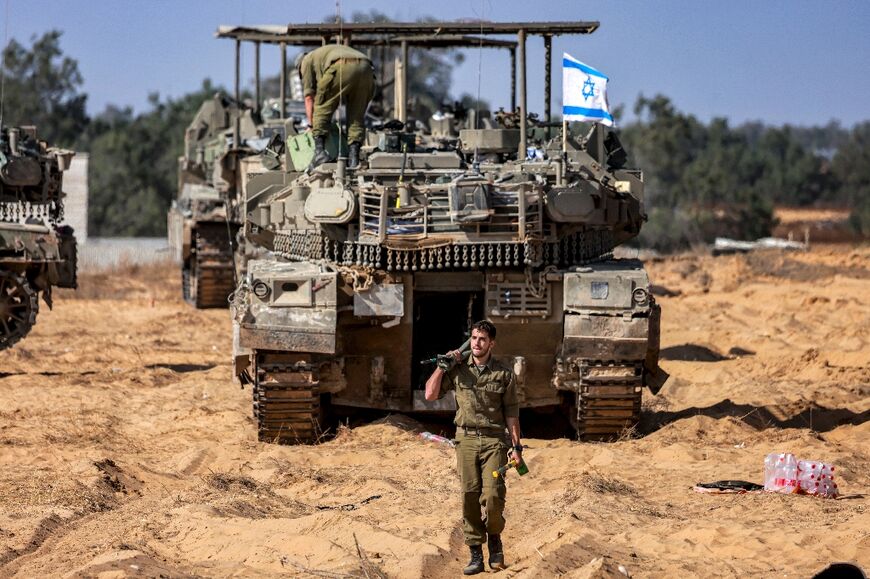
Analyst Mairav Zonszein, of the International Crisis Group, said Netanyahu "sounds like someone who is not interested in a deal".
UN Secretary-General Antonio Guterres said an Israeli assault on Rafah would "be an unbearable escalation, killing thousands more civilians and forcing hundreds of thousands to flee".
At the British parliament, Deputy Foreign Secretary Andrew Mitchell said the government was "doing everything (it) can" to prevent the offensive.
- Statehood -
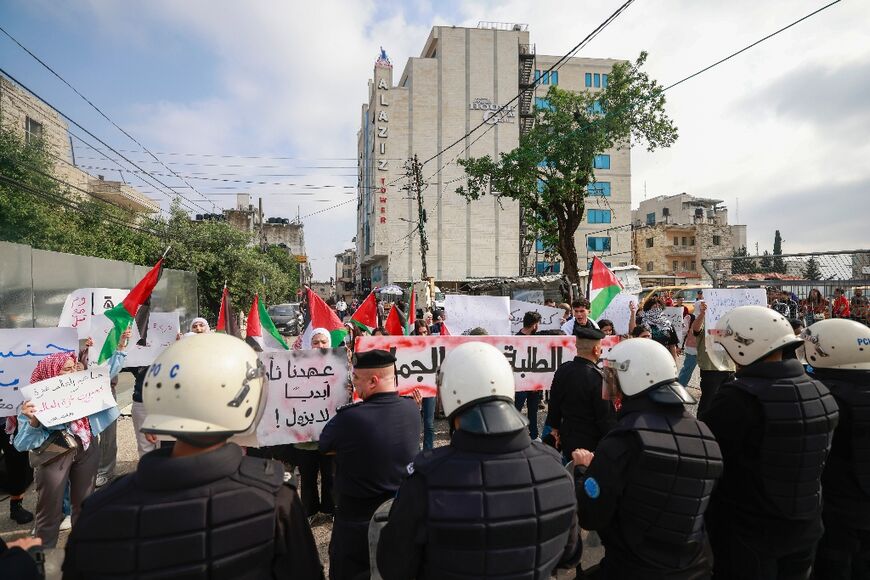
Guterres also called for "independent international investigators" to be given access to the sites of reported mass graves discovered at two Gaza hospitals.
The Israeli military, whose forces had sieged and raided the facilities in their fight against Hamas, has confirmed some bodies were exhumed in search for missing hostages but denied troops had dug the graves.
The war and its toll on Palestinian civilians have sparked international outrage, but also political momentum in the search for a post-war solution to the wider Israeli-Palestinian conflict.
European and Arab foreign ministers met in the Saudi capital on Monday to discuss how to join forces on advancing a two-state solution.
To provide Israel with an incentive, Washington has pushed the prospect of normalised relations with Gulf kingpin Saudi Arabia.
Riyadh has demanded "irreversible" steps towards Palestinian statehood, which Netanyahu and many members of his hard-right government oppose.
After a US-vetoed bid to give Palestinians full UN membership, EU foreign policy chief Josep Borrell said he expected several European governments to announce soon their recognition of a Palestinian state.
burs-jd/fz/ami/dv
